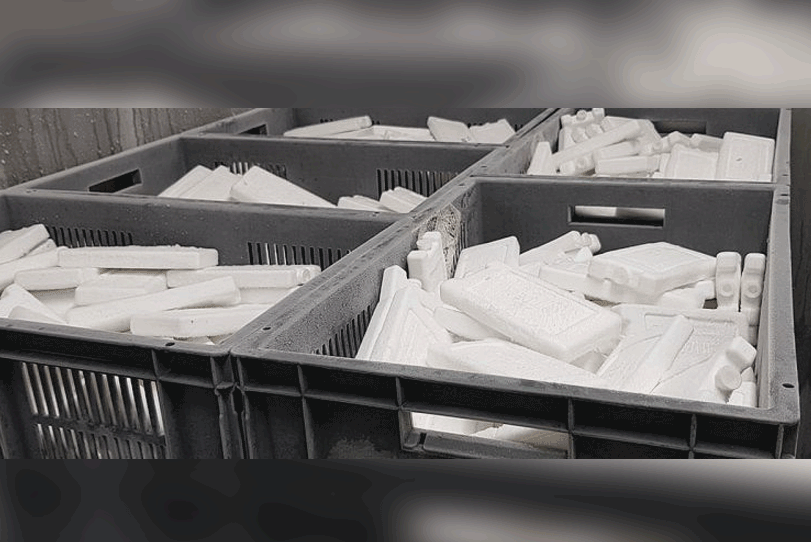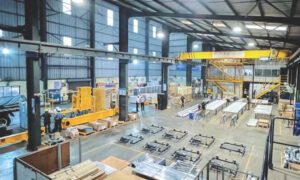Global cold chain market is highly fragmented and the major players have used various strategies such as new product launches, expansions, agreements, joint ventures, partnerships, acquisitions, and others to increase their footprints in this market. Development policies and plans are discussed along with the analysis of manufacturing processes and cost structures. This report also states import/export consumption, supply and demand Figures, cost, price, revenue and gross margins. The report includes market shares of Cold Chain Market for, Europe, North America, Asia Pacific, South America, Middle East and Africa.
The impact of lockdown on the supply chain
With the global population in partial or total lockdown and border restrictions in place, negative long-term impacts on global supply chain remain uncertain. The truth is, COVID-19 has irrevocably changed the global economic landscape and the cold chain industry is suffering. India has already taken plenty of robust steps to ensure that coronavirus doesn’t cripple its economy like it has done to some other countries across the world. The coronavirus lockdown has forced FMCG companies to step out of their comfort zones, as manpower shortage and shutting down of stores has brought the traditional distribution mechanism to a grinding halt.
People too have been fearful as the existing uncertainty about the essentials has contributed to a drop in levels in ‘stock-in-trade’ due to potential supply chain disruptions. Some impact has already been felt with deliveries of specific products have been delayed. The coming twoto-three weeks would be a testing ground on how supply chains are able to keep pace with the temporary rise in consumption. According to KPMG’s latest report, the lockdown market size of retail and consumer industry is US$950 billion (2018-2019) but with the coronavirus pandemic and the lockdown have brought economic activity to a standstill and could impact investment, consumption and external trade – the three major contributors to GDP.
With the industry facing several challenges, including changes in customer demand, restrictions and potential material shortages, the pandemic has forced many to rapidly adapt their cold chain supply.Companies are monitoring shortterm and long-term demand and inventory to plan production loss in the event of economic slowdown. Retailers are also faced with the challenge of inventory reductions as consumers stock up for quarantine. Home delivery services have also become a more appealing alternative for consumers who want to avoid the queues and exposure at the stores.
Although it is difficult to plan and mitigate the effects of an unprecedented crisis like this one, there are some things to consider when planning the strategy for the next weeks or months.
The challenges of Covid-19
The cost of building a new cold storage space is a huge barrier. Securing the necessary building materials was already difficult before COVID-19 due to the uncertainty about Brexit increasing the demand for cold temperature-controlled storage capacity in Ireland and the UK.
But this is not the only challenge businesses will face under this unprecedented demand and consumer behaviour shift. With many grocery stores and restaurants quickly adapting to carry on business by meeting new requirements, cold-chain safety when transporting goods from A to B will be a crucial process for them to analyse.
For companies that are new to deliveries of temperature-sensitive products, this will mean an investment in the right equipment to maintain the safety of end-consumers. While all of this concerns every company, but measures for employee safety is also important for which some of them are taking measures like equipping employees who handle perishable goods like meat, seafood and fish or other temperature sensitive produce, with protective equipment can help workers and consumers improve their confidence and safety, Food business operators should follow the Food Standards Agency’s (FSA) guidance to ensure good hygiene practices in food preparation and handling of goods are up to the standards.
Facing the upcoming challenges
Many businesses are undertaking extraordinary measures to ensure that essential goods are still being delivered regularly to shops and end-consumer doorsteps.
Events that have a very high impact but a very low probability of staying (black swan events) create short-term and long-term consequences. Although these situations are very hard to control and predict, there are some measures that should be considered to plan and mitigate the effects of a crisis like this.While each company may face unique risks and challenges, businesses could develop plans for both optimistic and more conservative situations. These scenario planning strategies will help come up with actions to take based on when normalcy to global operation happens. While customer preferences and demand may have changed, some businesses are playing the responsible part and informing their clients about their limitations. This is an option for many small businesses then can’t cope with demand. Farmers have seen an increased demand of eggs, flour and other essentials in the last weeks. A contingency plan to control demand while creating a positive reputation in the minds of the consumers seems to be the preferred strategy for many businesses within the food industry (big and small).
Technological contribution
Technology issues may also be worsening the current conditions for some businesses. It is also important to consider that these are unprecedented times and workforces are not prepared for a disruption of this magnitude. If companies have not invested in the right technology, employees may not be equipped to change direction and make the right decisions.
This should not be a negative but an encouragement for everyone to review the internal tools and embrace new solutions that may be more efficient, adaptable and reliable for the future challenges to come within the cold chain industry.
Delays in transportation can cause temperature changes that lead to a huge cost in wastage if these are not controlled effectively. Reliable mobile freezers for safe transportation are a key element for the correct functionality of the supply chain.
Until now, consumers were not ordering many perishables online, but that has changed. The trend is likely to stay for months to come once users get more comfortable with the new buying habits imposed by the crisis. Food box deliveries are becoming more common on every doorstep: fish, meat, charcuterie, bread and pastries, cheeses, potatoes and wonderful organic vegetables from local and small producers are now available to purchase online.
The dairy sector in Ireland is predicting that finding appropriate cold storage facilities will present problems in the following weeks, as the summer milk production peak is reached. In Ireland, only 10 percent of the milk supply goes into the high-end market of hotels and cafes which has been, by far, the hardest hit in this crisis.
Similarly, restaurants and foodservice companies may see a significant shift. With no dine-in options in place and more delivery or take-aways on the rise, a need for extra cold storage capacity will also be expected for businesses operating here.
Adapting other features
Freezer Plate Preconditioning could become an essential element for companies looking to improve efficiency within the cold-chain. This solution will not only maintain the health and safety standards intact but will also help businesses reduce the costs involved with cold storage.
Gel Packs or Freezer Plates are used within insulated containers, trucks and vans to prolong storage and allowing the safe transport of fresh produce. Last year our work highlighted many inefficiencies in the use, storage and preconditioning of eutectic plates.
With the implementation of a Blast Freezer combined with the Thermo King Magnum Plus temperature cooling unit, your business will be able to offer a perfect environment for the fast, effective freezing of Gel Packs.
If your current plate storage is posing a problem, or you feel the associated costs could be a little leaner, reach out to CRS today. One of our experienced staff will discuss your requirements and recommend the best solution.
CRS understand the challenges that food businesses face under these new circumstances. The situation may be new to us as well, but our 30 years of experience helping businesses within the temperature sensitive industry gives us the upper hand. We have been providing companies cold storage solutions that are efficient, reliable and cost-effective. If you would like to get some advice on how your cold chain supply could benefit from a high standard mobile freezer from CRS, fill out the form and one of our experts will be in touch soon. Alternatively, give us a call and we’ll be there to help.
For more details, visit: www.crscoldstorage.co.uk
Cookie Consent
We use cookies to personalize your experience. By continuing to visit this website you agree to our Terms & Conditions, Privacy Policy and Cookie Policy.















